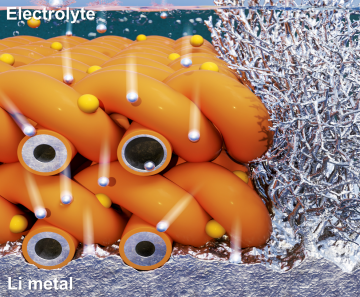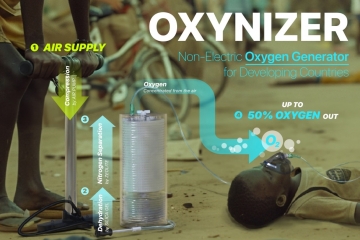KAIST
BREAKTHROUGHS
Research Webzine of the KAIST College of Engineering since 2014
Spring 2025 Vol. 24Engineering of an oleaginous bacterium for the production of fatty acids and fuels
Engineering of an oleaginous bacterium for the production of fatty acids and fuels
The metabolic engineering of an oleaginous microorganism, Rhodococcus opacus, has enabled the highest fatty acid and biodiesel (fatty acid ethyl esters and long-chain hydrocarbons) production efficiency ever reported. These will serve as promising platform strains for the sustainable production of a wide range of fatty acid-based products from glucose and other non-edible biomass.
Article | Spring 2020
Fossil fuels serve as raw materials and energy sources for our daily life. However, there are several serious issues with the petroleum-based industry such as scarcity of reserves and environmental problems such as global warming.
Therefore, the production of sustainable bio-based renewable energy is essential and is being studied to replace fossil fuels. A representative example is biodiesel. Currently, it is produced mainly through transesterification reaction of vegetable oils or animal fats. As an alternative to this process, Distinguished Professor Sang Yup Lee and his research team, from the Chemical and Biomolecular Engineering Department of KAIST, engineered an oleaginous microorganism, Rhodococcus opacus, to enable efficient production of fatty acids and their derivatives that can be used as biodiesels from glucose, one of the most abundant and cheapest sugars derived from non-edible biomass.
His research team has previously engineered Escherichia coli to produce short-chain hydrocarbons that can be used as gasoline, a result which was published in Nature as a cover article. Although it was an important breakthrough study, the production efficiency of the short-chain hydrocarbons using E. coli (0.58 g/L) was rather low for commercialization. To overcome such disadvantages, in the present study, the team employed oil-accumulating R. opacus as a host strain. In the first step, the team optimized the cultivation condition of R. opacus to maximize the accumulation of oil (triacylglycerol), which serves as a precursor for biosynthesis of fatty acids and its derivatives. In the next step, the metabolism of the strain was systematically analyzed and redesigned to enable high-level production of fatty acids and two kinds of fatty-acid-derived biodiesels (fatty acid ethyl esters and long-chain hydrocarbons). The resulting strains produced 50.2, 21.3, and 5.2 g/L of fatty acids, fatty acid ethyl esters and long-chain hydrocarbons, respectively. All of them are the highest titers ever reported by microbial fermentations. It is expected that these strains can contribute to the future industrialization of microbial biodiesel production.
“Our research on the efficient one-step fermentative production of fatty acids and biodiesels will play a major role in development of sustainable and eco-friendly bio-based industries and reorganization of the chemical industry, which is mandatory for solving environmental problems threatening the survival of humankind,” explained Professor Lee.
This paper entitled, “Engineering of an oleaginous bacterium for the production of fatty acids and fuels” was published in Nature Chemical Biology in June 2019 (DOI 10.1038/s41589-019-0295-5).
Most Popular

When and why do graph neural networks become powerful?
Read more
Smart Warnings: LLM-enabled personalized driver assistance
Read more
Extending the lifespan of next-generation lithium metal batteries with water
Read more
Professor Ki-Uk Kyung’s research team develops soft shape-morphing actuator capable of rapid 3D transformations
Read more
Oxynizer: Non-electric oxygen generator for developing countries
Read more
